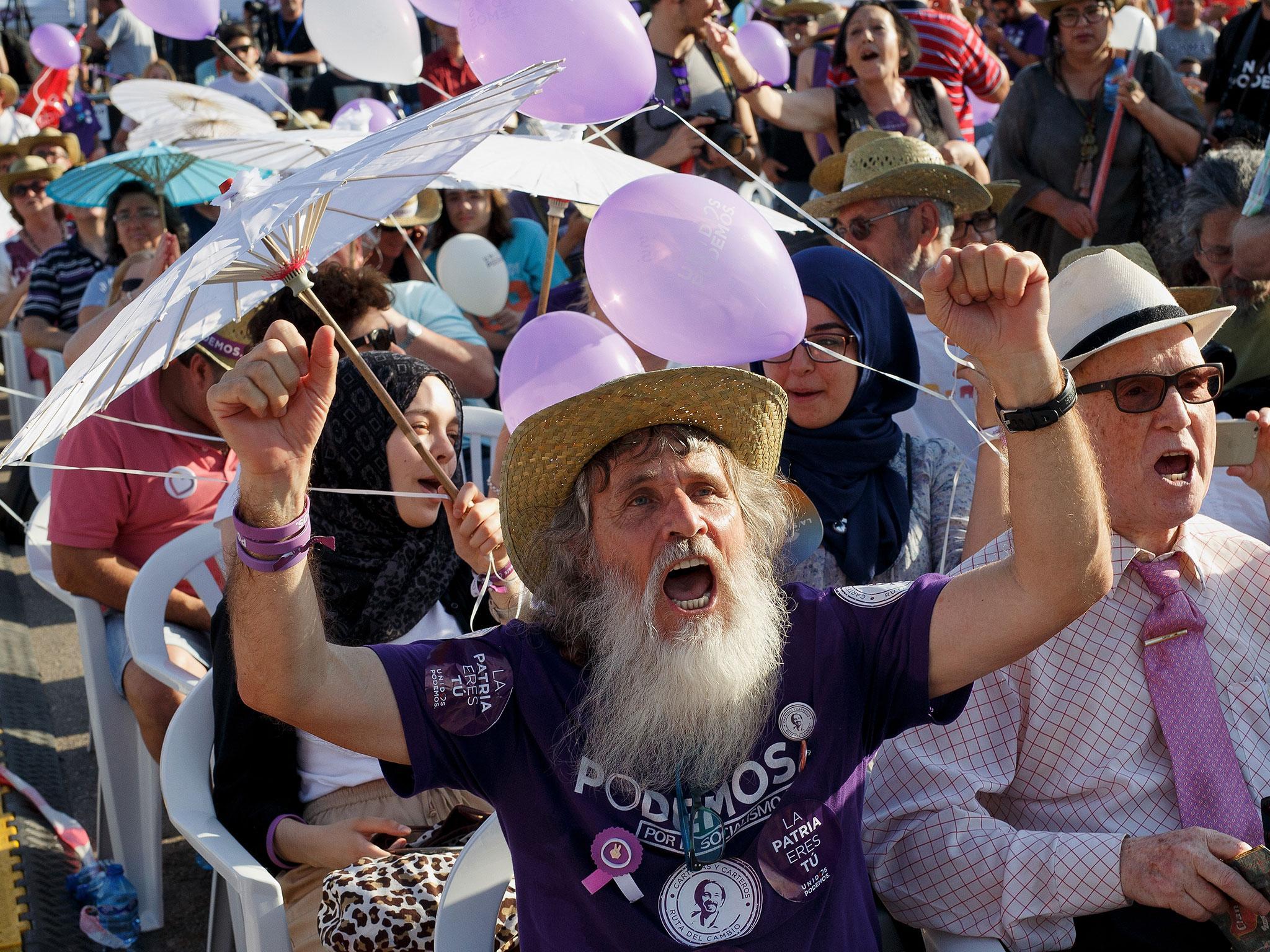Spanish elections fail to break political stalemate as results show little difference in six months
With 97 percent of the votes counted, the main parties are placing roughly the same as in last December's ballot

Your support helps us to tell the story
From reproductive rights to climate change to Big Tech, The Independent is on the ground when the story is developing. Whether it's investigating the financials of Elon Musk's pro-Trump PAC or producing our latest documentary, 'The A Word', which shines a light on the American women fighting for reproductive rights, we know how important it is to parse out the facts from the messaging.
At such a critical moment in US history, we need reporters on the ground. Your donation allows us to keep sending journalists to speak to both sides of the story.
The Independent is trusted by Americans across the entire political spectrum. And unlike many other quality news outlets, we choose not to lock Americans out of our reporting and analysis with paywalls. We believe quality journalism should be available to everyone, paid for by those who can afford it.
Your support makes all the difference.Spain's repeat election on Sunday failed to clarify the political future of the European Union's fifth-largest economy, with the main parties placing roughly the same as in last December's ballot, which brought six months of stalemate.
The conservative Popular Party, which ruled for the past four years, again collected most votes in the election but still fell short of the majority of 176 seats it needs in the 350-seat Parliament to form a government on its own.
With 97 percent of the votes counted late Sunday, incumbent prime minister Mariano Rajoy's party earned 137 seats in Parliament. That is better than the 123 it won in December but still means it will need allies if it wants to govern. Its earlier efforts to find support from rival parties after December proved fruitless.
The center-left Socialist Party placed second, collecting 22.75 percent of the vote and 85 seats, according to the count by the country's Interior Ministry. That was five fewer seats than six months ago but the Socialists kept their influence by fending off a challenge from a radical leftist alliance.
Unidos Podemos (United We Can) — which brings together Podemos, a two-year-old party that grew out of a grassroots protest movement, and the communists and the Greens — was third with 71 seats.
The alliance, headed by pony-tailed political science professor Pablo Iglesias, had hoped to overtake the Socialists and break the country's traditional two-party system. The Popular Party and the Socialists have alternated in power for decades.
The business-friendly Ciudadanos party came in fourth with 32 seats. Other, smaller parties won the rest of the vote by Spain's roughly 36.5 million voters.
With no party getting enough votes to form a government alone, politicians will now have to return to the negotiating table. That may again prove difficult, for Spain has never had a coalition government.
Antonio Barroso, a London-based analyst with the Teneo Intelligence political risk consulting group, said he expected tough negotiations between the parties in coming weeks.
"It was hoped that these elections would bring clarity and that a government would be formed quickly, but I don't think that's how it's going to be," Barroso said.
He said a third election was even a possibility, though politicians would be under huge pressure to avoid that.
Public anger at high unemployment, cuts in government spending on cherished services such as welfare and education and unrelenting political corruption scandals shaped the two-week election campaign.
Outside a Madrid polling station, many voters said they wanted Sunday's election to bring a break with the past.
"I'm voting for change, so that our politicians understand that we don't agree with what they've been doing," said Maria Jesus Genovar, a 47-year-old teacher who supported Unidos Podemos.
Unidos Podemos wants to improve job security, increase the minimum wage and strengthen the welfare state and other public services.
But Maria Jose Escos, a 59-year-old government worker, said she had no appetite for the new parties.
"I'd like everything to be like it was before," the Socialists supporter said.
Iglesias, who leads Unidos Podemos, has said he wants a pact with the Socialists in order to oust Rajoy. But a major sticking point is Iglesias's insistence on letting the powerful northeastern region of Catalonia stage an independence referendum — a possibility other main parties have rejected outright.
Ciudadanos is willing to talk to both the Popular Party and the Socialists but want no deal with Unidos Podemos.
Besides tensions over Catalonia, Spanish politics has been dominated by a national unemployment rate of more than 20 percent and an unrelenting stream of corruption scandals, mostly involving the Popular Party and the Socialists.
Join our commenting forum
Join thought-provoking conversations, follow other Independent readers and see their replies
0Comments